Diversity as a Driver of Social Progress: A consultation within the Rectors' Conference of the Republic of Slovenia
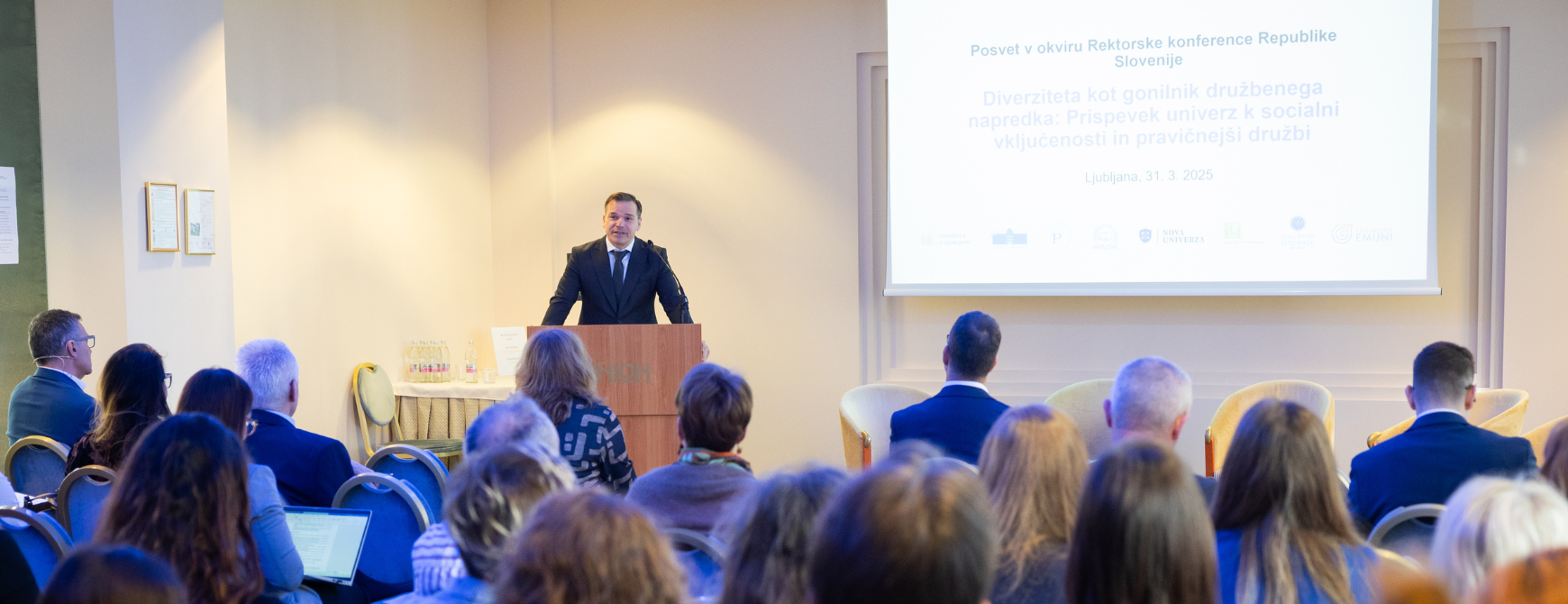
Bor Slana/STA
Date of publication:
On Monday, 31 March 2025, the University of Ljubljana hosted a panel discussion entitled “Diversity as a Driver of Social Progress: The Contribution of Universities to Social Inclusion and a Fairer Society”, organised within the framework of the Rectors' Conference of the Republic of Slovenia. The event brought together representatives from all eight Slovenian universities, along with decision-makers and experts, to discuss the role of universities as agents of social responsibility and inclusivity.
The consultation was opened by Prof. Dr Klavdija Kutnar, Rector of the University of Primorska and President of the Rectors' Conference of the Republic of Slovenia, and Urban Kodrič, State Secretary at the Ministry of Higher Education, Science and Innovation. Prof. Dr Kutnar emphasised the importance of cooperation between universities and the Ministry, referencing the recent meeting of the said Ministry, where support mechanisms for projects were presented. She expressed confidence that the gathering of representatives from all eight universities would generate new ideas and initiatives to foster a more inclusive educational environment. Urban Kodrič underscored that a university should be a place where diversity is not only accepted but actively valued: “Universities are not just places for acquiring knowledge – they are much more. They are where values are shaped and where a safe and respectful environment is created for all students.”
The third mission of universities – from concept to action
The keynote address was delivered by Prof. Dr Attila Pausits from the University for Continuing Education Krems, who spoke about the importance of the third mission of universities. This mission extends beyond the traditional roles of education and research, encompassing active social engagement. He noted that such activities are often project-based rather than being embedded in academic structures. He stressed that the third mission is not exclusive to universities, but instead calls for the involvement of all societal players and strong cross-sectoral collaboration. Clear objectives, measurable indicators, and effective monitoring tools are essential to ensure meaningful progress.
Good practices and innovative approaches
Universities play a vital role in fostering an inclusive society and reducing social inequalities. Through a variety of projects and practices, they help make education more accessible, support socially vulnerable groups, and generate innovative approaches to achieving greater equality in academic settings. The second part of the consultation featured a presentation of successful practices already in place at Slovenian universities.
Prof. Dr Matevž Pogačnik from the University of Ljubljana highlighted the significance of open-access materials in the digital age, stressing the importance of universal content accessibility as a core value of the internet. The University of Maribor introduced its pedagogical network designed to support higher education teachers and staff, alongside its UM Student Hub, which serves as a support centre for students. The University of Primorska showcased various student-focused activities, including a 24/7 library and social spaces, a scholarship fund for top-performing students, and the development of a fund for those in financial need who do not qualify for other forms of support. The University of Nova Gorica promotes a safe and inclusive environment through organisational measures such as gender equality and anti-harassment policies. It also supports artistic and humanistic initiatives and offers scholarships to talented students. At the New University, all lectures are available in the e-classroom, which improves the accessibility of study content. The University of Novo Mesto tackles social inequality through research initiatives, including workshops for students that simulate life on minimum wage. Alma Mater Europaea University emphasises regional access to quality education, addressing the uneven distribution of development support across Slovenia. One of its projects, Physiotherapists Without Borders, allows students to engage in humanitarian work around the world. EMUNI, the Euro-Mediterranean University, contributes to the successful integration of Syrian asylum seekers into higher education.
Through their initiatives, universities not only educate – they also actively shape a more just and solidarity-based society, where every individual has the opportunity to succeed.
Round table: Equal Opportunities and Students' Rights – Legal Framework and Practice
The consultation concluded with a roundtable discussion focused on the legal frameworks and practical approaches to ensuring equal opportunities for all students. Boštjan Vernik Šetinc, Independent Adviser to the Advocate of the Principle of Equality, highlighted persistent systemic shortcomings: “It is not enough to merely provide formal conditions. What’s written must also be effectively implemented. Individual adaptations must be ensured so that students with disabilities can study on an equal footing. Failing to do so is a form of discrimination.”
Associate Prof. Dr Milena Košak Babuder, Student Ombudsman at the University of Ljubljana, underscored the importance of staff being professionally trained to work with students with special needs. As regards making adjustments for such students, she noted: “Adaptations are not privileges – they are meant to create equality, ensuring students can perform on equal terms. The right to adjustments exists so that students can compensate for their deficits. These students must still demonstrate their knowledge, just like anyone else.”
Duša Marjetič, Head of the Higher Education Division at the Ministry of Higher Education, Science and Innovation, presented recent amendments to the Higher Education Act, which aim to more precisely regulate support for students with special needs and specific statuses. A key change includes the introduction of individualised adaptation plans that higher education institutions will be required to develop in cooperation with each student. Additionally, the amended act introduces a new provision regarding the “additional year”, enabling students with disabilities or special statuses to study beyond one extra year.
Assistant Prof. Dr Helena Jeriček Klanšček from the National Institute of Public Health emphasised the importance of supporting vulnerable groups, noting that their difficulties are increasing. However, she also warned that an overly narrow focus on these groups could lead to stigmatisation. It is therefore essential to provide interventions that benefit the entire student population, while also ensuring targeted support for those who need it most.
-
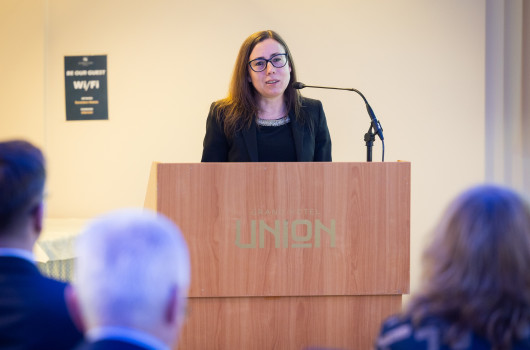
prof. dr. Klavdija Kutnar, rektorica UP, predsednica RK RS
Author: Bor Slana/STA
-
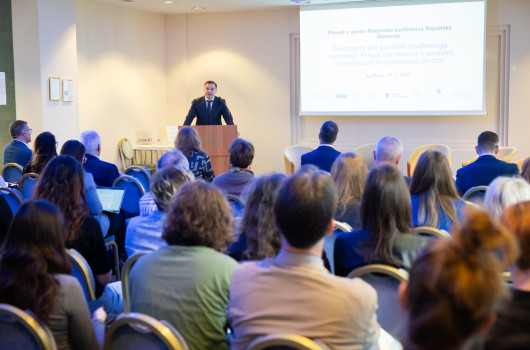
Urban Kodrič, državni sekretar, Ministrstvo za visoko šolstvo, znanost in inovacije
Author: Bor Slana/STA
-
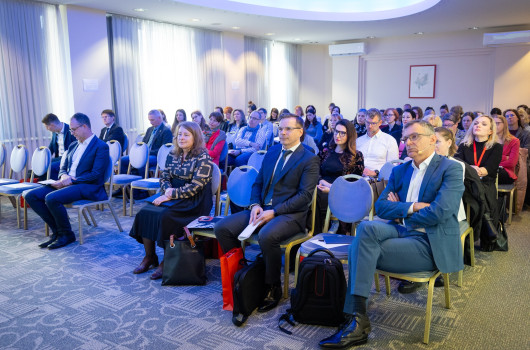
Poslušalci na dogodku
Author: Bor Slana/STA
-
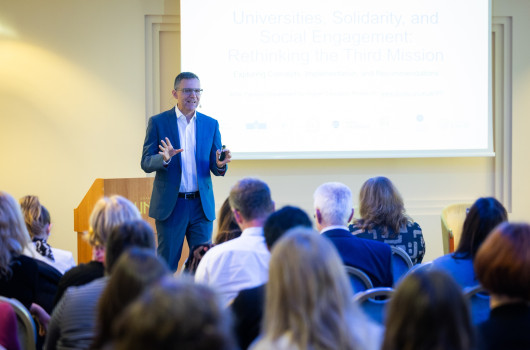
prof. dr. Attila Pausits, University for Continuing Education Krems, Avstrija
Author: Bor Slana/STA
-
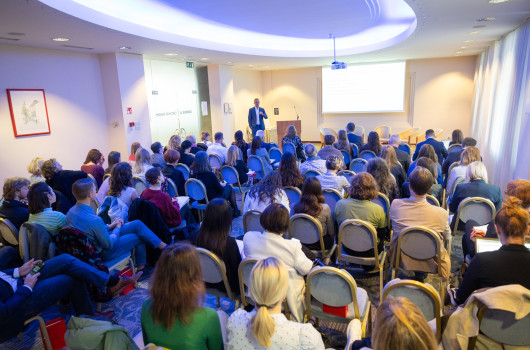
prof. dr. Attila Pausits, University for Continuing Education Krems, Avstrija
Author: Bor Slana/STA
-
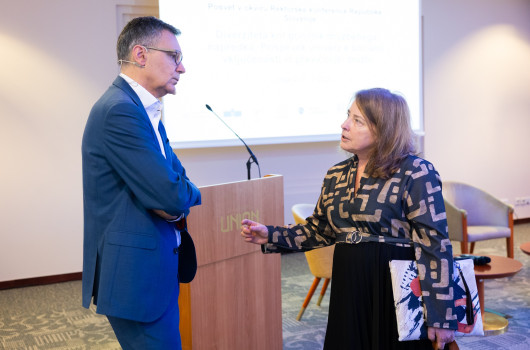
prof. dr. Attila Pausits, University for Continuing Education Krems, v pogovoru s prorektorico prof. dr. Ksenijo Vidmar Horvat, Univerza v Ljubljani
Author: Bor Slana/STA
-
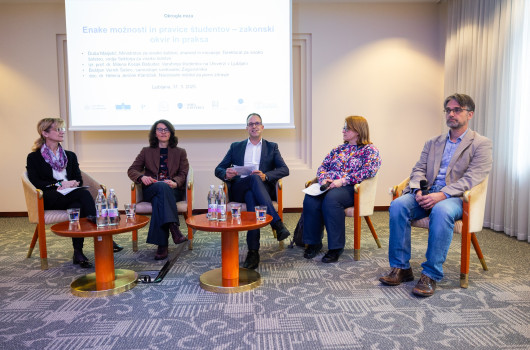
izr. prof. dr. Milena Košak Babuder, UL, doc. dr. Helena Jeriček Klanšček, NIJZ, moderator prof. dr. Tomaž Petek, UL, Duša Marjetič, MVZI, Boštjan Vernik Šetinc, samostojni svetovalec Zagovornika načela enakosti
Author: Bor Slana/STA
-
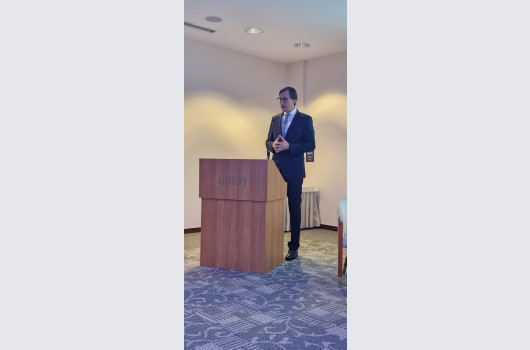
prof. dr. Matevž Pogačnik, Univerza v Ljubljani
Author: USŠA
-
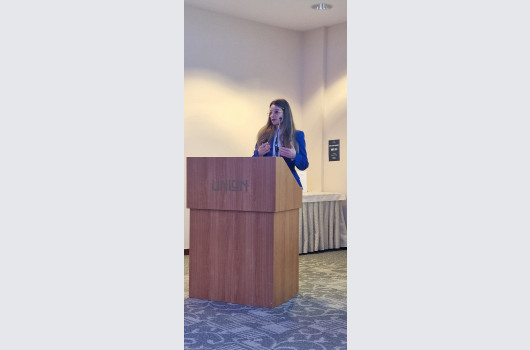
dr. Natalija Špur, Univerza v Mariboru
Author: USŠA
-
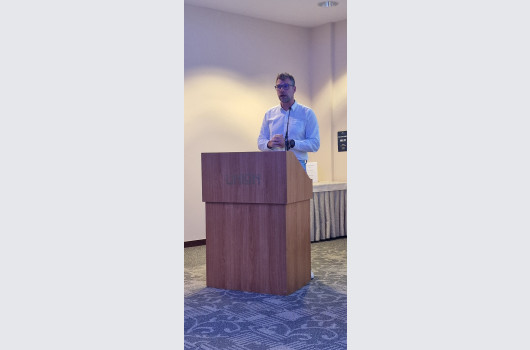
Aleš Oven, Univerza na Primorskem
Author: USŠA
-
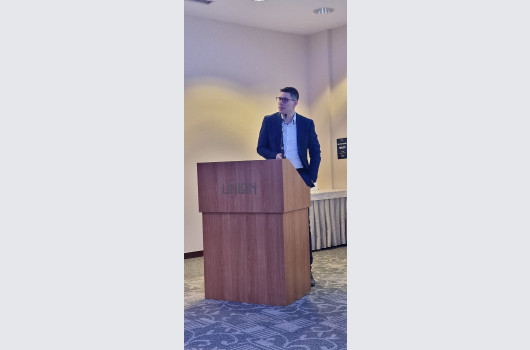
doc. dr. Blaž Belec, Univerza v Novi Gorici
Author: USŠA
-
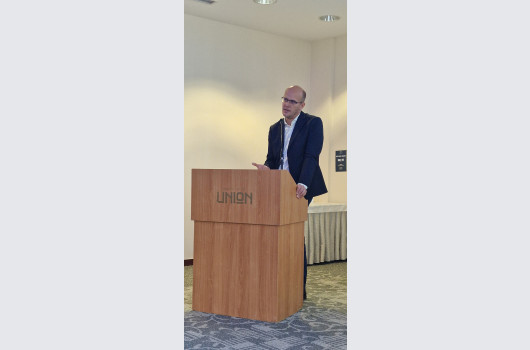
prof. dr. Jernej Letnar Černič, Nova univerza
Author: USŠA
-

Sabina Krsnik, Univerza v Novem mestu
Author: USŠA
-
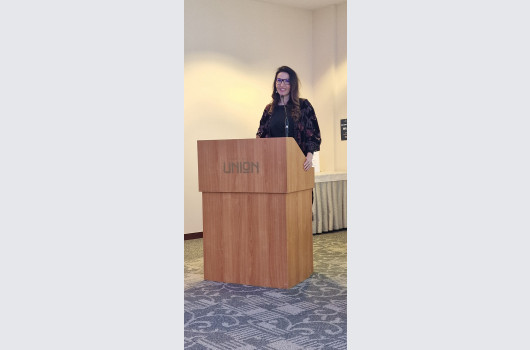
izr. prof. dr. Barbara Toplak Perović, Univerza Alma Mater Europaea
Author: USŠA
-
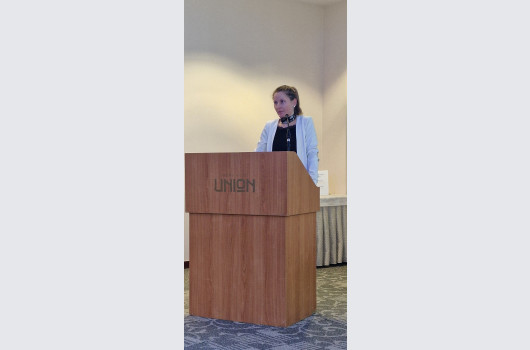
Polona Oblak, Evro-sredozemska univerza EMUNI
Author: USŠA
